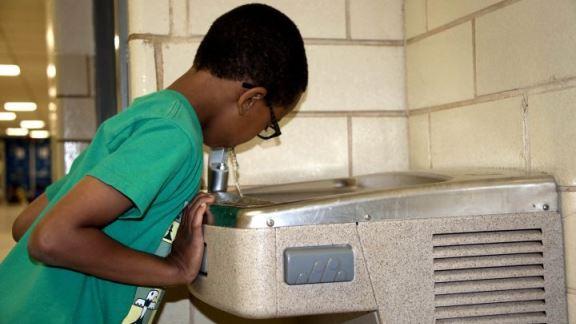Community News
NYC Dept. of Health Flouting Its Own Lead Test Requirements

 By Akosua K. Albritton
By Akosua K. Albritton
NYC Department of Health and Mental Hygiene (DHMH) failed to ensure that all group day care facilities perform lead water tests and submit the test results to DHMH. Rather, the agency directed personnel to input false data into the Child Care Activity Tracking System (CCATS) in order that the permit applications for renewing and new facilities could be completed.
DHMH monitors 2,279 center-based group day care programs operating throughout the five boroughs. 230 child care centers are located in Central Brooklyn of which 119 are located in the Bedford-Stuyvesant environs; i.e., within the 11216, 11221, and 11233 zip codes. The Bureau if Child Care (BCC) is the division that is responsible for permit issuance and program operation assessments.
While drinking water sources maintain high standards, lead in NYC drinking water can occur due to the pipes and fixtures leading into and in buildings. It was not until 1986 that the federal government banned the use of lead pipes in construction. Further, the existing fixtures and soldering contain lead. Therefore, it is important that testing is done in early childhood programs and schools.
It is the NYC Comptroller’s Office that uncovered the monitoring failure during its latest audit made public in a press release distributed June 24 and June 28, 2016. Comptroller Scott Stringer writes in the audit’s cover letter, “It should not take an audit to ensure that a City agency is doing its job to protect our kids. Unacceptable lead levels in drinking water are at or above 15 parts per billion.”
Some quarters may explain the noncompliance is due to the regulations not stating the frequency of the testing nor time when they should be done. However, BCC and the day care facilities know the permit’s term duration is two years and the expiration date is printed on each permit. Therefore, lead water testing and the nine other permit application requirements can be completed in advance of the given expiration date.
DHMH 1st Deputy Commissioner Oxiris Barbot, MD’s response letter to the audit is telling of the flouting of the required step:
“…We strongly disagree with the auditor’s opinion that these operational issues raise health and safety concerns…the most common cause of lead poisoning is related to paint, not water…”
The Comptroller’s audit involved a sample of 119 group day care with permits issued between August 29, 2012 and August 29, 2014. Only 49 had permit applications with lead test results. Ten within the sample were located in Brooklyn, three of which were in Central Brooklyn, i.e., located in the 11203, 11206, and 11221 zip codes.
The remaining 70 did not have lead water test reports. 16 within this set were located in Brooklyn, of which five are Central Brooklyn locations: 4 in 11203 and 1 in 11225.
The unasked question is why didn’t the centers do the lead water testing? Was it a matter of cost? The audit does not cover this. Online shopping for lead water test kits reveal prices of $23.67 for kits containing two tests; $21.90 for a kit containing five tests; and $58.99 for a kit containing one test that is sent to a laboratory for results.
New York City residents can test the water in their homes for free. Call 311 to request a test kit to be mailed to the residence.
The upshot to the audit is that DHMH/BCC concurred with the recommendation for the agency to consider modifying the lead water test requirement to clarify when it is required. In fact, the requirement modification is up for a vote by the Board of Health September 2016.
Parents and guardians are urged to visit DHMH’s Child Care Connect web page where they can access a database that contains the names and addresses of group day care providers. DHMH cautions, “A permit issued by the Health Department is not an endorsement.”


